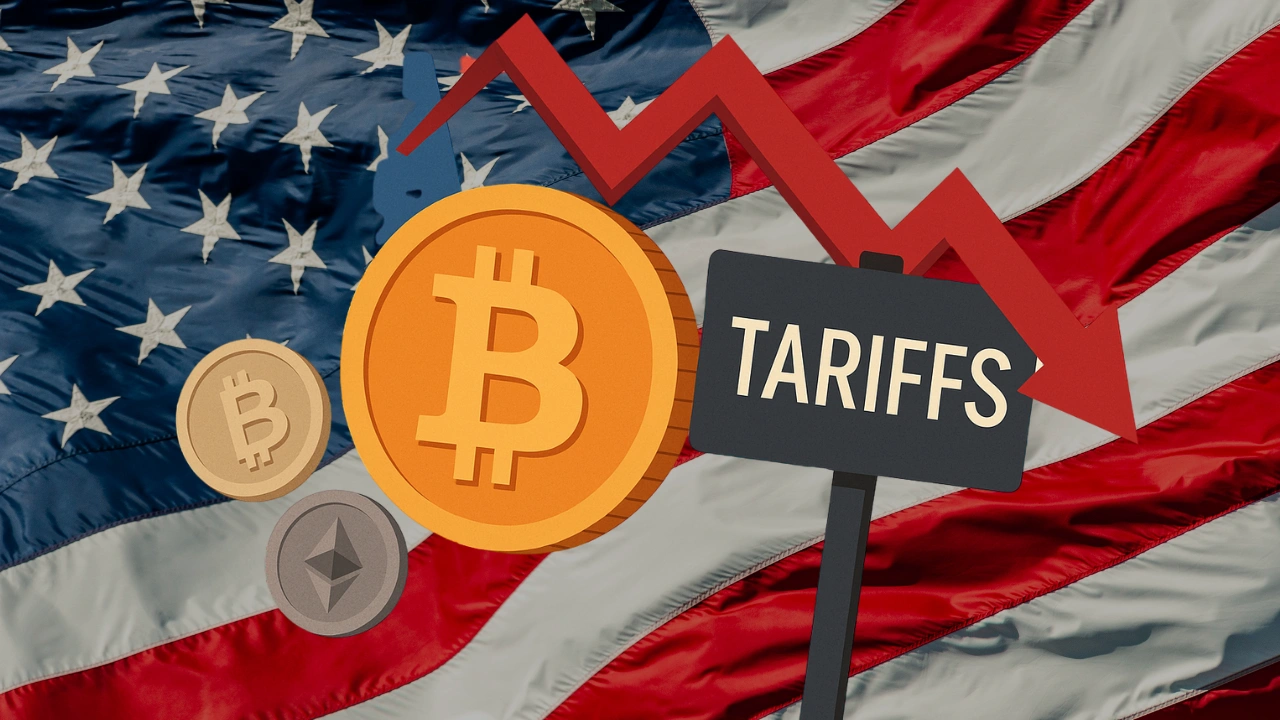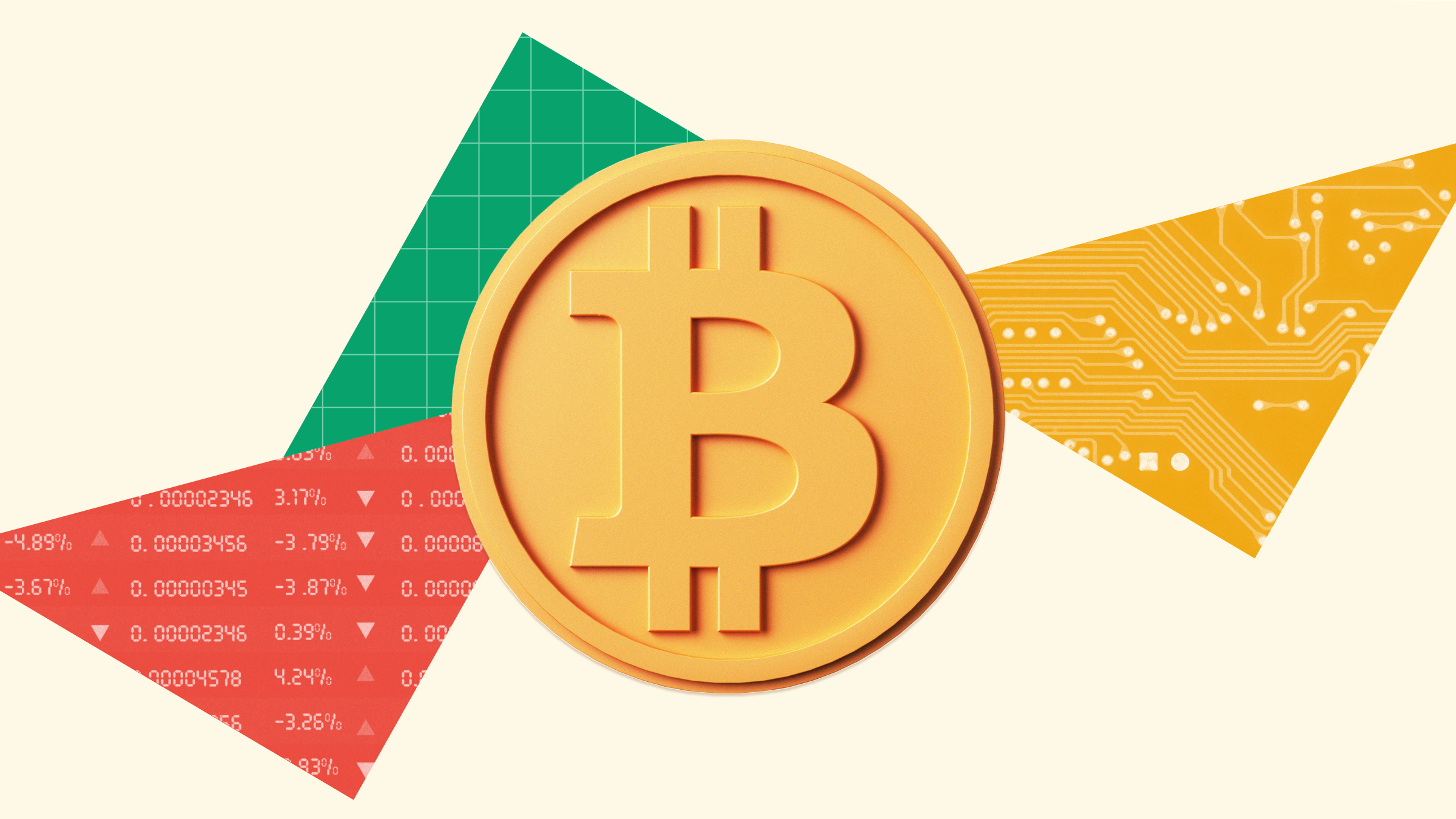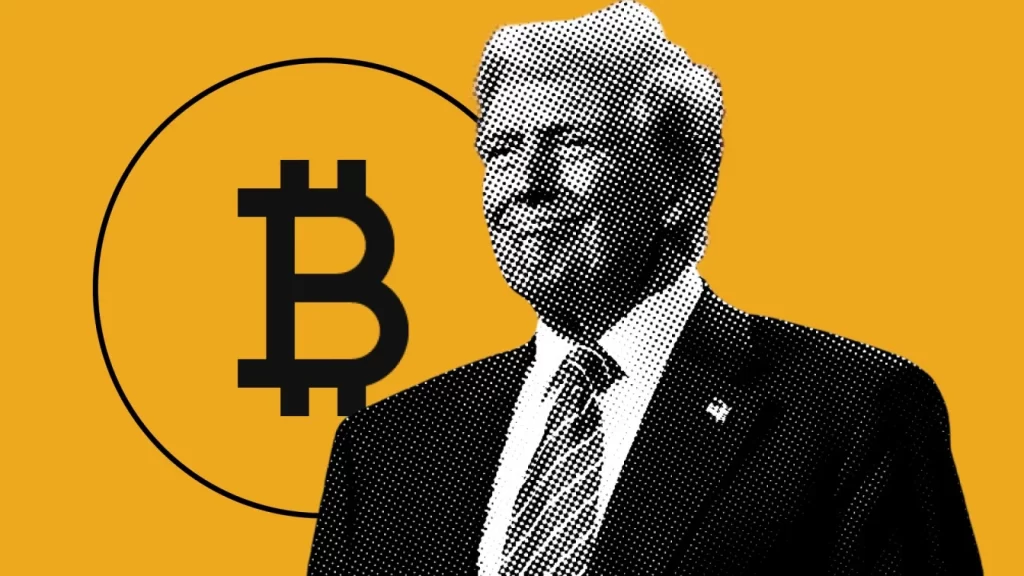Is Bitcoin the Answer to the USD War on Tariffs? Here’s What You Need to Know
As trade wars intensify and tariffs threaten the stability of the U.S. dollar, could Bitcoin be the answer? Is Bitcoin the answer to the USD war on tariffs? This article dives into Bitcoin’s potential as an alternative investment during tariff-induced economic volatility. We’ll explore Bitcoin’s unique features, its role in global markets, and expert opinions on its viability. Let’s unpack how Bitcoin might help investors navigate uncertain times.
Key Takeaways
- Bitcoin’s fixed supply and decentralized nature make it an appealing alternative to fiat currencies weakened by tariffs, positioning it as a potential safe haven during economic instability.
- Trump’s tariffs have negatively impacted the US dollar, causing a drop in its value and increasing inflationary pressures, which could drive investors toward Bitcoin as an alternative asset.
- While Bitcoin may experience short-term volatility during tariff-induced market turmoil, its historical resilience and potential long-term gains highlight its value for investors seeking to diversify their portfolios.
Bitcoin’s Potential Amidst the Global Trade War

As the global trade war intensifies, Bitcoin’s potential as a financial asset becomes more evident. Tariffs might weaken the U.S. dollar, prompting investors to seek more stable and predictable alternatives. Bitcoin’s fixed supply and decentralized nature contrast sharply with fiat currencies, often influenced by expansionary monetary policies. Investors increasingly see Bitcoin as a safeguard against fiat currency uncertainties.
Moreover, Bitcoin’s unique behavior compared to traditional financial assets is noteworthy. While growth-focused altcoins often mirror the movements of the stock markets, Bitcoin has shown a lower correlation, currently around 40%. This unique behavior suggests that Bitcoin might behave differently during times of economic turmoil, potentially offering a refuge for investors seeking to diversify their portfolios amidst the unpredictability of tariff-induced market fluctuations.
Ongoing negotiations and tariff announcements have created a volatile economic environment, potentially pushing investors toward Bitcoin as a more stable alternative. Unlike traditional assets directly impacted by human-driven policies and tariffs, Bitcoin operates independently of such influences, offering a means to navigate the uncertainties of the global trade war.
Impact of Trump’s Tariffs on the US Dollar

Trump’s tariffs have profoundly impacted the US dollar and the global economy. Initially, tariffs can boost the US dollar’s value by increasing demand in foreign exchange markets. However, this appreciation is a double-edged sword: it makes imports cheaper for American consumers but makes US exports more expensive for foreign buyers, potentially harming American businesses.
The fluctuating nature of tariffs can offset anticipated trade surplus benefits. The US dollar index, for instance, dropped over 1% to its lowest value in three years, contributing to a nearly 10% decrease since April. This trend toward de-dollarisation reflects investors reevaluating the US dollar’s appeal as the leading global reserve currency, making it appear weaker.
Consumers in the US are also feeling the pinch. Trump’s tariffs have increased prices on various goods, affecting everyday purchases. Coupled with inconsistent tariff policies, this creates uncertainty and diminishes trust in the US and its currency. Financial analysts worry that ongoing trade tensions may lead to declines in both traditional markets and Bitcoin, highlighting broader economic risks.
Trump’s tariffs have impacts beyond US borders. Reciprocal tariffs from countries like China further complicate the global economic landscape. This tit-for-tat tariff battle may increase recession fears, disrupting markets and affecting investment strategies worldwide, as tariffs are imposed by President Trump.
Could Bitcoin Outperform the US Dollar During Tariff Wars?
Whether Bitcoin could outperform the US dollar during tariff wars is a compelling question. Amid tariffs causing market instability, Bitcoin has shown reduced volatility, suggesting it may become a more stable asset compared to U.S. stocks. This shift positions Bitcoin as a potential safe haven, especially when traditional assets like U.S. Treasury bonds face selling pressure.
Although Bitcoin is seen as a potential hedge against inflation, its price has recently shown a strong correlation with stock markets, meaning it may fall during economic downturns. However, higher tariffs could lead to inflation and a weakening US dollar, creating an opportunity for Bitcoin to emerge as a competitive alternative. The current political landscape and crypto-friendly policies may further bolster Bitcoin’s standing amid tariff-related challenges.
Bitcoin’s unique structure and decentralized nature make it attractive for investors seeking alternatives to traditional financial systems. While tariffs may negatively impact Bitcoin in the short term, its long-term potential remains promising. As the global economy navigates trade war complexities, Bitcoin’s role as a stable and resilient asset could become increasingly significant.
Short-Term Volatility vs. Long-Term Gains for Bitcoin
Bitcoin’s historical price patterns show extreme volatility, with frequent dramatic value fluctuations. For example, Bitcoin dropped just over 1.5% shortly after Trump’s tariffs announcement, while the S&P 500 lost more than 10%. This brief moment of lower volatility compared to stocks highlights bitcoin’s price potential as a relatively stable asset during specific economic events.
However, tariffs can negatively affect Bitcoin’s price during global recessions. Bitcoin crashed in 2022 during high inflation, but historical events show its potential resilience during instability. Despite these challenges, Bitcoin continues to exhibit potential long-term value, as evidenced by its performance during past recession expectations in 2018 and 2022.
The key takeaway for investors is to balance short-term volatility with the potential for long-term gains. While Bitcoin may experience price drops during immediate economic shocks, its historical resilience suggests that it can recover and provide substantial returns over time. Understanding this dynamic is crucial for those considering Bitcoin as part of their investment strategy.
The Role of Inflation and Interest Rates
Inflation and interest rates significantly influence Bitcoin’s value. Higher U.S. tariffs may lead to increased inflation and reduced economic growth, initially causing Bitcoin’s value to decline. As inflation rises, central banks may raise interest rates, leading to a decline in many asset prices, including cryptocurrencies.
Tariffs might also increase costs for Bitcoin miners in the US, reducing operational capacity and affecting Bitcoin’s supply. However, Bitcoin operates as a digital asset, unlike physical goods affected by import duties. This distinction allows Bitcoin to remain resilient against country-specific trade policies, supported by its hard cap of 21 million coins, which creates predictable scarcity.
Bitcoin’s decentralized nature further enhances its appeal. Unlike fiat currencies, which can be manipulated through monetary policies, Bitcoin operates independently. This independence, combined with its predictable issuance rate, positions Bitcoin as a unique asset in an inflationary environment. As investors seek alternatives to traditional currencies, Bitcoin’s role as a hedge against inflation becomes increasingly relevant.
Risks and Rewards: Investing in Bitcoin During Economic Turmoil

Investing in Bitcoin during economic turmoil comes with its own risks and rewards. Short-term tariff policies may diminish foreign investment in the US, potentially leading to a depreciation of the dollar. A global recession could negatively impact Bitcoin, especially as investor confidence wanes during downturns. Bitcoin can experience price drops during tariff-induced market turmoil, highlighting its vulnerability to immediate economic shocks.
Despite these risks, Bitcoin remains attractive for some investors. Historically, significant tariff announcements have led to inflationary pressures, enhancing Bitcoin’s appeal as a hedge against fiat currency instability. Higher inflation in fiat currencies can drive investors toward cryptocurrencies, which may have lower inflation rates compared to traditional currencies. However, individual risk tolerance and investment goals should be considered before adding Bitcoin to a portfolio.
Bitcoin’s speculative nature means it carries high risk, making it unsuitable for investors seeking consistent returns. Nonetheless, prolonged trade war issues could drive investors toward scarce assets like Bitcoin, offering potential rewards for those willing to navigate its volatility. Thorough research and a clear understanding of the risks and rewards are crucial.
Expert Opinions on Bitcoin as a Hedge Against Tariffs
Expert opinions on Bitcoin as a hedge against tariffs vary. In the long run, Bitcoin’s appeal as a safe asset might strengthen if tariffs contribute to economic instability. Some experts suggest that Bitcoin’s emergence during previous financial crises indicates its potential as a hedge against current economic downturns. However, not all experts agree. Economist Peter Schiff expresses skepticism about Bitcoin’s ability to mitigate adverse effects of market crises caused by tariffs.
The expectation of a prolonged trade war is likely to suppress demand for cryptocurrencies, as investors may prefer traditional safe havens. Despite this, the decentralized nature of Bitcoin mining, spread across various jurisdictions, ensures that no single country’s trade policy can significantly disrupt its operations. This decentralization, combined with the digital nature of cryptocurrencies, makes them unaffected by tariff regulations targeting physical goods.
Geopolitical tensions and tariffs may encourage countries to adopt stablecoins and digital assets as alternatives to traditional financial systems, enhancing their role in global commerce. Despite tariff-related volatility affecting traditional markets, Bitcoin has demonstrated resilience and growth, backed by favorable macroeconomic conditions and increased institutional interest in money.
These expert opinions highlight the complex and multifaceted nature of Bitcoin’s role in the current economic landscape, as economists have noted.
Comparing Bitcoin with Traditional Safe-Haven Assets
Bitcoin is increasingly perceived as a digital version of gold, acting as a potential hedge against economic instability. While Bitcoin is gaining traction as a hedge against equity market turbulence, it has not yet surpassed gold as the primary safe-haven asset during economic crises. Some analysts view Bitcoin as a potential ‘digital gold’, suggesting it could serve as a safe investment against inflation.
Traditional safe-haven assets like gold have seen an increase in value, demonstrating a shift in investor preference during tariff-induced market volatility. This shift indicates that while Bitcoin is becoming more prominent in the safe-haven asset category, it still has some way to go before it can rival gold’s established position. Comparing Bitcoin and traditional safe-haven assets highlights the evolving nature of investor preferences and the growing acceptance of digital assets.
As the global economy continues to face uncertainties, the role of Bitcoin as a hedge against economic instability is likely to become more pronounced. Its unique characteristics, combined with increasing acceptance, position Bitcoin as a viable alternative to traditional safe-haven assets. Investors looking to diversify their portfolios may find Bitcoin’s potential appealing, especially amid ongoing economic challenges.
How Global Markets Respond to Tariff Announcements

Global markets respond to tariff announcements with significant volatility. Investor sentiment has become cautious, leading to a significant decline in total crypto market capitalization, dropping approximately 25.9% due to macroeconomic instability following tariff announcements. Bitcoin and Ethereum experienced substantial price drops of 19.1% and over 40%, respectively, indicating their sensitivity to economic changes.
The announcement of broad tariffs significantly impacted global markets, causing a decline in the U.S. stock market, which entered bear territory. The intricate connections between industries and their supply chains complicate the impact of tariffs, leading to significant market responses even for firms with limited direct exposure. This complexity underscores the far-reaching effects of tariff announcements on global markets.
Retaliatory measures by foreign nations can counteract the currency appreciation expected from U.S. tariffs. China swiftly retaliated by imposing its own tariffs on U.S. imports, showing a decisive response compared to the hesitant approach of other regions. The EU also plans to retaliate by imposing levies on notable American products, indicating a tactical response to protect its trade interests.
Historical trade confrontations demonstrate that earlier tariff announcements can lead to a broader reassessment of risk in financial markets and their potential impact. These announcements often lead to increased short-term volatility in financial markets, with investor reactions suggesting expectations of increased costs and disrupted trading environments. This volatility can trigger a critical factor for investors to consider when navigating the complexities of global trade wars and the potential for a rally.
Summary
In summary, Bitcoin’s potential role amidst the USD war on tariffs is multifaceted and complex. While tariffs and trade wars create economic instability, Bitcoin’s unique characteristics as a decentralized digital asset offer a compelling alternative to traditional currencies and safe-haven assets. Despite its volatility and speculative nature, Bitcoin’s resilience and growing acceptance position it as a viable option for investors seeking to hedge against economic uncertainty. As the global economy continues to evolve, Bitcoin’s role in the financial landscape is likely to become increasingly significant.
Frequently Asked Questions
How do tariffs impact the value of the US dollar?
Tariffs can initially increase the value of the US dollar due to higher demand in foreign exchange markets, but they may ultimately harm American businesses and reduce the dollar’s value if exports become too expensive.
Can Bitcoin be considered a safe-haven asset during economic instability?
Bitcoin may offer some refuge during economic instability, but it has not yet proven to be as reliable as traditional safe-haven assets like gold in investor preference. Therefore, while it shows potential, caution is warranted when considering Bitcoin for this purpose.
How do inflation and interest rates affect Bitcoin’s value?
Inflation and rising interest rates can lead to a short-term decline in Bitcoin’s value, but its fixed supply and decentralized nature position it as a potential hedge against inflation over the long term.
What are the risks of investing in Bitcoin during economic turmoil?
Investing in Bitcoin during economic turmoil poses risks including significant short-term price fluctuations and heightened volatility. It’s crucial to assess your risk tolerance and investment objectives before incorporating Bitcoin into your portfolio.
How have global markets responded to tariff announcements in the past?
Global markets have historically reacted to tariff announcements with considerable volatility, often resulting in declines in stock prices and dips in cryptocurrencies. Retaliatory actions from other countries exacerbate these fluctuations.

